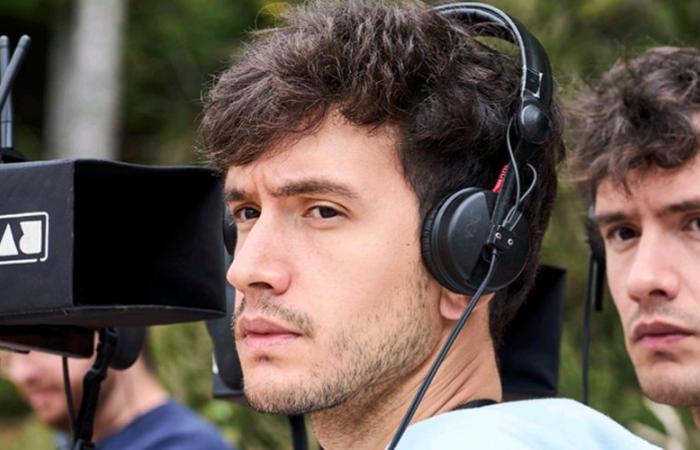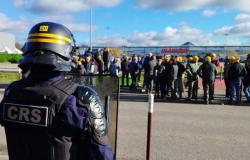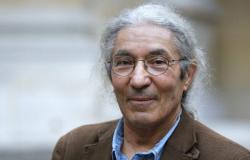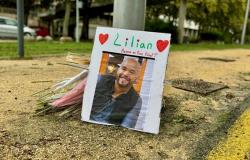
the essential
Twins, born in Marmande and both directors, Ludovic and Zoran Boukherma directed the eponymous novel by Nicolas Mathieu, Goncourt Prize 2018: “Their children after them”. The film will be previewed this Wednesday, November 6 at 7:15 p.m. at the CGR in Agen, in the presence of the directors and actor Sayyid El Alami.
The story takes place in August 1992 in a lost valley in the East where the blast furnaces no longer burn. Anthony, fourteen, is bored, but meets Stéphanie. He secretly borrows his father’s motorcycle to go to a party where he hopes to find her, but the next morning the motorcycle has disappeared. Suddenly, his life turns upside down.
“The book is structured around four summers and the events that take place between these periods, but we chose to focus only on the present time and these four summers, deciding to crowd out anything that happened outside of this temporality », explains Zoran Boukherma. “This story deals with social determinism and confinement in a city. If the characters often evoke elsewhere, we decided never to show them to reinforce the idea that, for our characters, these elsewhere are impossible,” adds his brother Ludovic.
A strong link with their personal history
This idea of escaping to an impossible elsewhere resonates deeply with young directors. “This story touched my brother and me, because we found a bit of ourselves as teenagers there,” remembers Zoran. “We grew up on the outskirts of Agen, in Port Sainte-Marie, in a modest environment. The main character of Nicolas Mathieu’s novel is close to us, sharing the same social context and a lack of perspective which forces him to reproduce class. We had already made four films before this one, but the social question was not at the heart of these projects. We had a deep desire to express ourselves on this theme. » However, the idea germinated elsewhere. “Gilles [ndlr, Lellouche] came to pick us up. Initially, he wanted to adapt this novel into a series, but very quickly, we had the feeling that it deserved the big screen, and Gilles obviously had his place there as an actor. » We find in the cast of this film, produced by Warner Bros, the actors Paul Kircher, Angelina Woreth, Sayyid El Alami, Ludivine Sagnier and Gilles Lellouche. “We auditioned around forty actors for each role. We made choices that were sometimes different from what the book initially inspired. For example, we wanted an actor to play the character of Anthony who was gentler and less combative than in the novel. We chose to make him a more lunar, reserved and interior character. Perhaps unconsciously so that he looks like us,” asks Zoran. “We belong to the last generation to have grown up without a cell phone, a detail that may seem trivial, but which directly links us to Anthony’s adolescence,” adds Ludovic.
The role of Patrick (Gilles Lellouche) is also very different from the original character: “In the novel, Patrick is very racist, which is sociologically right, but in the cinema, this can quickly appear as a stereotype. We wanted to avoid this pitfall. We preferred to make him a more left-wing man, an alcoholic who above all harms himself and who can move us,” explains Ludovic.
Filming in Moselle, the heart in Lot-et-Garonne
No too crude hand-held camera, but a film with music, traveling shots, sequence shots and above all, a very romantic dimension. “For reasons of consistency, the film was shot in a region of former mining basins, otherwise Lot-et-Garonne could have been a choice. We live far from here today, but it remains the cradle of our history. We are happy to return to Lot-et-Garonne for this preview. We hope to see our former teachers from the Lycée George Sand in Nérac in the room. With Ludovic, we had a theater option. We had teachers proofread our work when we wrote our first script. They supported us in our dreams. Personally, I wanted to be a teacher out of realism. They always advised me not to neglect my dreams and guided me towards this profession,” confides Zoran.
Francis Cabrel in the film music
The soundtrack is by Amaury Chabauty, like those of all the twin directors’ films. “We wanted orchestral music, paying homage to American cinema and consistent with the soundtrack of the 90s. We also wanted a memorable theme, like the films of Zemeckis or Spielberg, with which we grew up,” explains Ludovic. Their choice was also to use pre-existing music, as American cinema does, but by mixing French variety songs with international hits. “The ambition was also to create emotion from popular songs like “Je te donne” by Goldman or “A Saturday evening on the earth” by Cabrel,” concludes Ludovic.





